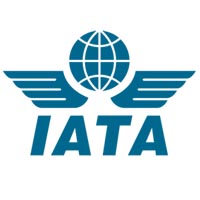Cash or Card: What Indian Travellers Should Use Abroad
Indian travellers often wonder whether to carry cash or rely on cards when traveling abroad. Both options have their advantages and disadvantages, depending on the destination, travel style, and personal preferences. This blog will help guide your decision on whether to use cash or card while traveling abroad.
Why Is Cash Better?
Easier Accessibility: Cash is essential for tipping and shopping in places that don’t accept cards.
No Transaction Fees: Cash doesn’t come with foreign transaction or dynamic currency conversion (DCC) fees like credit or debit cards.
Staying in Budget: Cash helps you keep track of expenses and stick to your budget.
Insurance Policy: Local currency ensures that you are not stuck in other countries when your card is either lost, declined, or stolen.
Benefits of Using Cards
Safety and Comfort: Cards are ideal for avoiding the need to carry large sums of cash. Modern features like instant card blocking provide peace of mind.
Improved Rates for Currency Exchange: It is common for cards to attract better exchange rates as compared to kiosks and airport counters.
Rewards and Benefits: Frequent travelers prefer cards for rewards, cashback, lounge access, travel insurance, and fraud protection.
Expanses That Are Easy To Create: Any transaction made through a card can be seen with the help of banking applications. This allows you to stay on top of your spending.

Two Side Challenges
Cash Issues: Bundling a lot of cash can be a safety hazard and can also be inconvenient. Additionally, unutilized foreign currency could collect dust after the trip.
Card Limitations: Some places may not accept cards, and there may be unexpected fees like international transaction charges.
Advisory For Travellers From India
A Blended Approach Needs To Be Taken: Carry both cash and cards. It’s advisable to allocate 30% of your budget to cash and use a multi-currency forex card for the rest.
Pick Forex Cards: For international travel, prepaid forex cards are a convenient and cost-effective option. You can load multiple currencies onto these cards, which offer better exchange rates and help you avoid extra transaction fees.(Forex cards are prepaid cards used for foreign currency conversion.)
Let Your Bank Know: Notify your bank about your travel plans to avoid your card being flagged for suspicious activity.
Always keep some local currency on you: Keep some local currency handy in case cards aren’t accepted or for emergencies.
Avoid Currency Exchange at Airport: Avoid currency exchange at airports, as they often offer poor rates. It’s better to get a forex card or exchange cash before departure.
When to use cash instead of the cards, or vice versa?
Cash:
For small purchases, taxis, or public transport.
When visiting rural areas or shopping at flea markets.
Cards:
For hotels, shopping centres, and vehicle rentals.
Internet reservation of facilities and restaurants.
Conclusion
To Indian tourists, what is better between cards and cash is very much determined by their travel destination, their budget, and their own style. Using a combination of both cash and cards offers more comfort, security, and helps avoid unnecessary charges. With proper planning, you can enjoy your trip without worrying about payment glitches.


